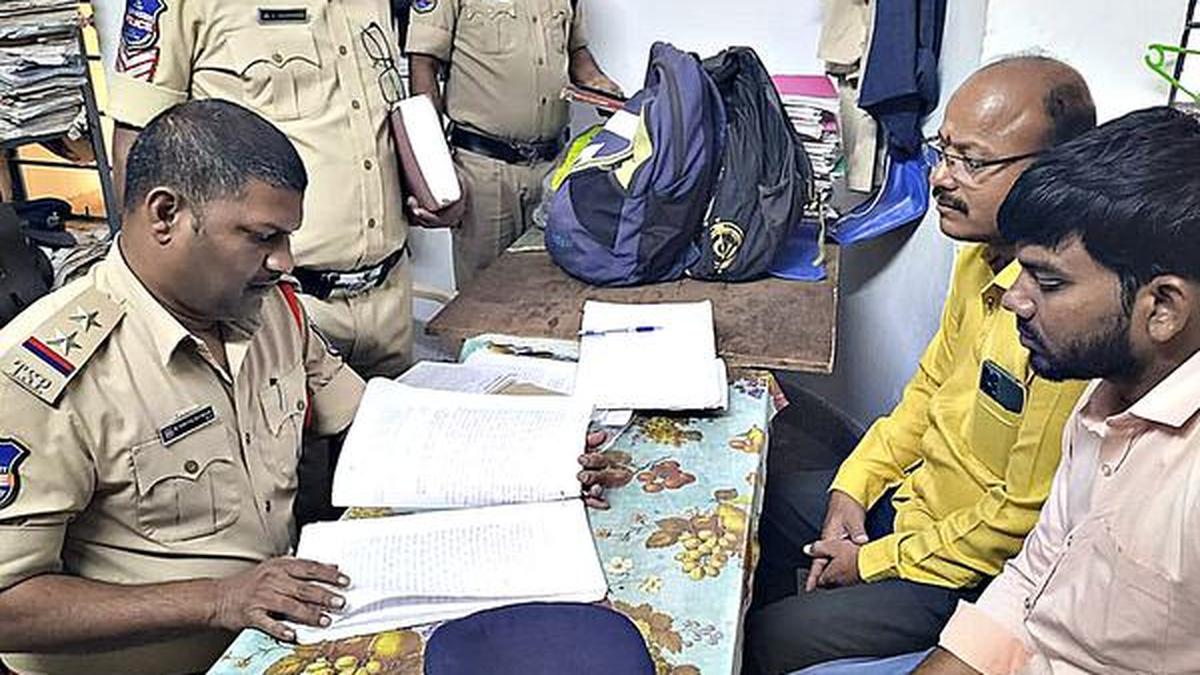
Conviction countdown: from trial to triumph in Telangana Premium
The Hindu
Rachakonda police solve chilling murder case, secure life sentences using meticulous investigation and forensic evidence.
The discovery was chilling — the lifeless body of a 55-year-old woman lay crumpled in a dark corner of the cellar of an old building, her head bearing multiple wounds. A blood-stained boulder sat ominously nearby, and a strand of hair clenched tightly in her fist hinted at a desperate struggle. Her dishevelled clothes raised suspicions of sexual assault.
It was June 14, 2023, when Pochampally police teams of Rachakonda commissionerate arrived at the abandoned building in Pillaipally village, about 40 kilometres from Hyderabad. Among the scattered clues, an emptied 180-ml liquor bottle seemed like just another piece of trash. Little did they know, this unassuming glass bottle would unravel the chilling identity of the murderer.
Acting on a tip-off, police apprehended Mohammed Anwar, a labourer in his mid-30s from Bihar, working at an under-construction building in the village. Under intense interrogation, Anwar confessed to the crime — violating the woman in intoxicated condition after spotting her alone in the cellar, and then silencing her with a fatal blow from a boulder.
While the confession offered investigators instant relief, solving the case within 48 hours, their ordeal was far from over. Securing a conviction posed a far greater challenge, as confessions to police are inadmissible in court. Determined to build an iron-clad case, the team meticulously examined every shred of evidence collected from the crime scene.
Much headway could not be made. The first breakthrough came in the form of fingerprints lifted from the seemingly inconsequential liquor bottle found near the body. Of the two chance prints recovered, one was unusable. But the other turned out to be a perfect match with Anwar’s fingerprints, collected during his arrest.
The evidence confirmed Anwar’s presence at the crime scene but fell short of conclusively proving he committed the murder, despite his confession and willingness to lead the police to the spot. Even his admission of sexually assaulting the victim wasn’t enough to eliminate doubt. The forensic doctor in his autopsy report also noted ‘recent vaginal penetration’, but this left room for Anwar to claim that while he may have violated the woman, someone else could have committed the murder, implicating him in the process.
Investigators were tantalisingly close to solving the case, yet critical gaps remained. The breakthrough came from the victim’s vaginal and cervical swabs, collected during the autopsy. Forensic experts, in their analysis, conclusively linked Anwar to the crime, as the swabs matched his DNA profile, turning suspicion into certainty.

A training session on environmental monitoring of paddy fields was conducted for the farmers of Thenpathu village near Manur in Tirunelveli district recently. The benefits of using lesser amounts of pesticides, the need to protect crops from the onslaught of insects and worms, and the importance of producing non-toxic food items were highlighted in the training.










